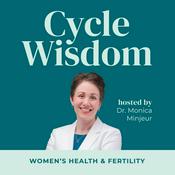Acne and hair shedding after stopping birth control can feel alarming—but they’re often signs that your hormones are waking up and asking for support. In this episode of Cycle Wisdom, Dr. Monica Minjeur explains why post-pill acne and hair loss happen, how long it typically lasts, and when testing actually helps (and when it doesn’t). Through Allie’s story, you’ll learn how SHBG, testosterone, progesterone, nutrients, and ovulation recovery intersect—and what truly helps your skin, hair, and cycles rebalance without panic or unnecessary medications.
If post-pill symptoms are leaving you confused or discouraged, you don’t have to navigate this transition alone. At Radiant Clinic, we specialize in cycle-informed, restorative care that supports hormone recovery without masking symptoms.
Schedule a free discovery call at radiantclinic.com to learn how we personalize care for skin, hair, and fertility health.



